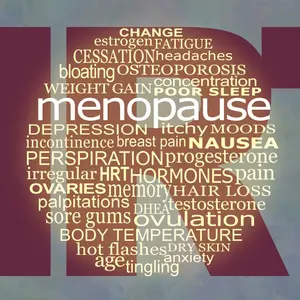

Functional Medicine

Functional Medicine
5 Hormone Hacks to Accelerate Weight Loss
Are you frustrated with losing weight and keeping it off? Have you tried everything and feel like you are stuck and getting nowhere? Have you considered it might be your hormones?
Hormones control everything and your lifestyle can control your hormones. Hormones have profound effects on just about every aspect of your body. However, hormones are not what you think. Vitamin D is a hormone, and so are melatonin, cortisol, insulin and thyroid. All have an effect on your weight!
Vitamin D
Studies show that women with low levels of Vitamin D weigh more and gain more than women with adequate levels.
- Vitamin D levels are lower in obese individuals.
- Higher levels are associated with lower weight gains, suggesting low vitamin D status may predispose to fat accumulation.
- A review of studies suggested Vitamin D may affect body fat loss.
- Get your levels measured and take Vitamin D3 with Vitamin K2 as MK7 (menaquinone).
- Optimal levels are 50-90 [nmol/L].
Melatonin
Melatonin is known as the sleep hormone and lack of sleep leads to cravings and weight gain. However, new studies have found that melatonin may increase metabolism, weight loss and protect muscle tissue that burns calories!
- The women who supplemented with melatonin decreased fat mass by 7%.
- They were also able to increase lean mass by 2.6%.
- Adiponectin hormone increased significantly by 21% in the melatonin group.
- Adiponectin is a protein hormone involved in how the body regulates glucose levels and the breakdown of fatty acids.
- Supplementing with 1 or 3 mg of melatonin for 12 months was shown to reduce body fat, increase lean mass, and increase levels of adiponectin, which improves how the body burns fat.
Thyroid
Even if your TSH (Thyroid Stimulating Hormone) is normal, your thyroid hormone or its response in your body may be suboptimal. Most physicians will look at TSH and sometimes free T4 [thyroxine that is not attached a protein in the blood]; however, free T4 is not as active a hormone until an iodine is removed and it becomes free T3.
- Free T3 can be low and you may not have a good effect. It can be low due to stress, trauma, infection, inflammation, nutritional deficiencies, and aging.
- Reverse T3 if high is like putting a block under the gas pedal. You can’t rev up your engines and thyroid hormone won’t work very well. This also occurs due to stress, trauma, infections, and inflammation.
- Get your levels measured. While there is much disagreement on what is optimal, a TSH around 2 seems to be the sweet spot, with reverse T3 less than 15 and a free T3 between 3.5 and 4.5.
- Not everyone tolerates these levels so be sure you are monitored closely by someone with expertise in this area.
Insulin
Insulin regulates blood sugar and whatever sugar is not burned is stored as fat. The more glucose (sugar) spikes you get from a high carbohydrate, sugar or processed food meal, the higher insulin will peak. These high peaks can cause insulin resistance. Your body just stops responding to it and needs more and more to allow the signal to be heard. It becomes like a nagging voice and is ignored.
- Insulin resistance not only makes you gain weight, it leads to metabolic syndrome (high blood pressure, high triglycerides, high cholesterol, high blood sugar, and increased belly fat).
- Polycystic Ovarian Syndrome (PCOS) which can include acne and/or oily skin; increased facial and body hair with decreased hair on the head; infertility; infrequent, absent, or prolonged periods; obesity or weight gain; and high levels of androgens.
- The best treatment for insulin resistance is weight loss using a low carbohydrate diet. Fasting or intermittent fasting can help along with supplements like alphalipoic acid, fish oil, and berberine. For PCOS adding myo inositol and d chiro inositol are helpful.
- For very stubborn weight issues I recommend the HCG [human chorionic ganadoropin hormone] diet or the Vibrance for Life® Metabolic Reset. Both give dramatic and fast results and help you with hormone balancing, reducing inflammation, and resetting your metabolism.
Cortisol
Any dis-stress can send a signal to your body to raise cortisol. While cortisol is essential to life, too much can break down muscle and bone, raise blood sugar, and store fat. Furthermore, it is best modulated by removing the source of dis-stress.
- Food is a factor and removing refined sugar, processed foods, and grains as well as caffeine and alcohol can lower levels.
- Relaxation and managing your reactions to stress through breathwork, prayer, meditation, yoga, tai chi, reframing, cognitive behavioral therapy, energy work, and many more techniques can calm your nervous system and stop the distress signals that raise cortisol.
- Adaptogens and calming herbs such as ashwaganda, rhodiola, L theanine, magnolia Eleuthera, and more can make your cells more resilient and keep you calm which helps lower cortisol levels.
- Phosphatidylserine, a phospholipid, lowers cortisol and protects the memory cells of your brain.
- Supplements are not all equal. Be sure you buy good quality from a reliable source.
There are many other hormones that affect weight such as estrogen/progesterone balance in women and testosterone/estrogen balance in men, leptin, adiponectin, and the other factors such as inflammation, toxins, hormone disruptors, lack of sleep, and medications. The mystery of your hormone status can be solved. Find someone who can help you regulate your lifestyle and hormones for lasting results. We have in-person and remote programs that can help. Reach out if you need us.
This article is reprinted with permission from the author, Lorraine Maita, MD, and first appeared in How to Live Younger.


 By
By






